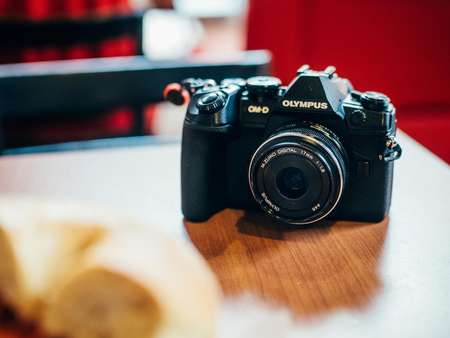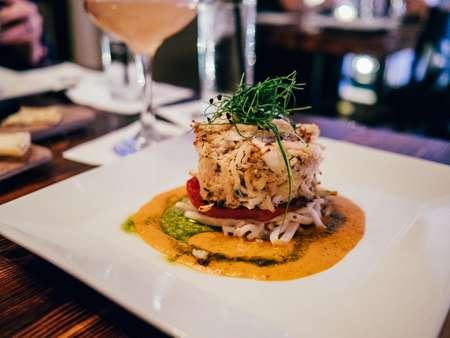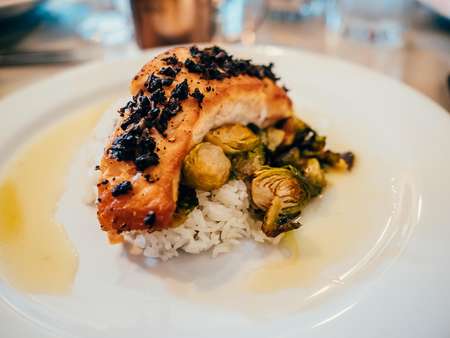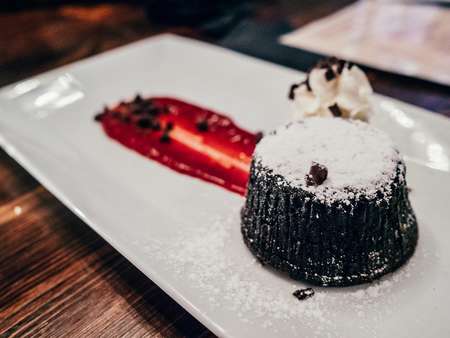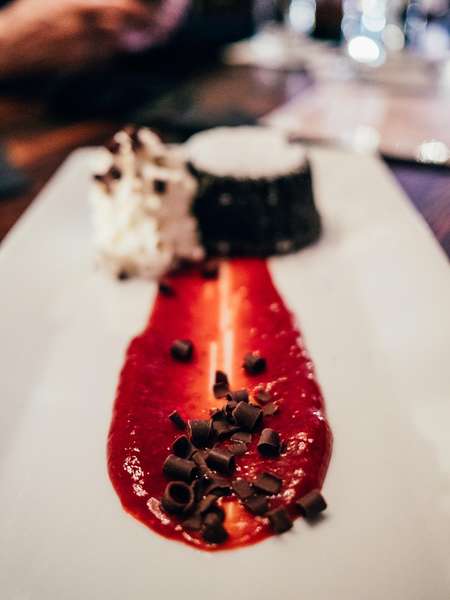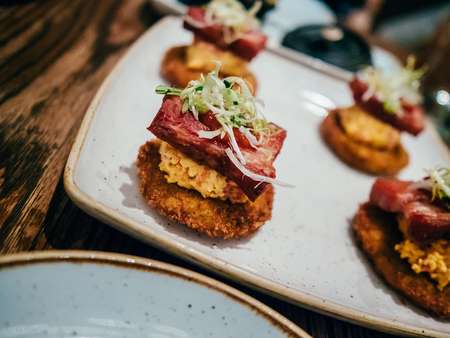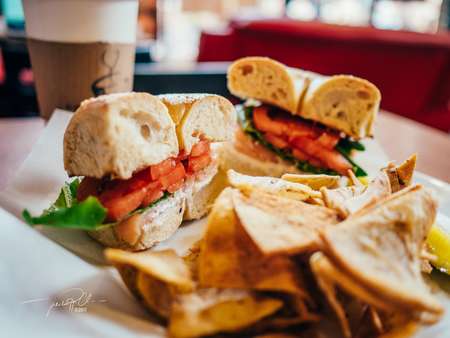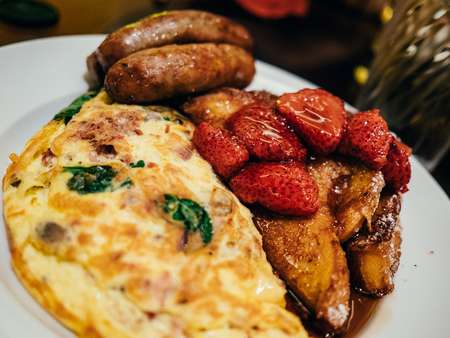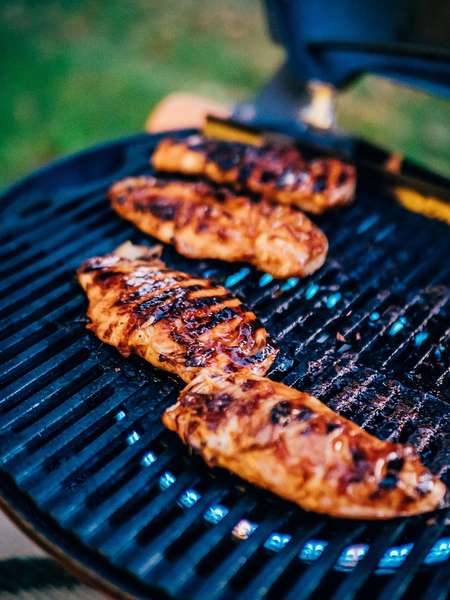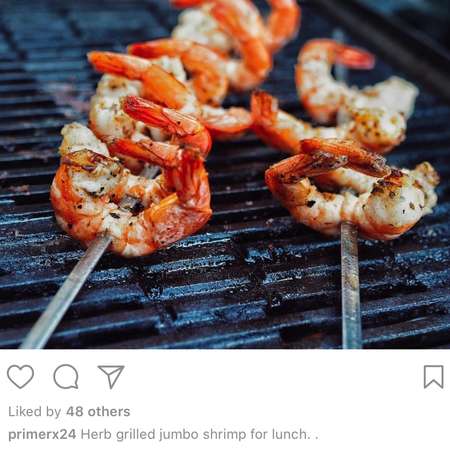I’ve always loved food and photography, so as a photographer, the marriage of the two has been very creatively satisfying. My style of food photography is close to a journalistic approach. I don’t spend hours dressing up my food with the perfect lighting and plating. I take photos of how the food was served, in the place it was served, as I’m about to eat it.
I used to lug around a heavy DSLR with a 50mm lens – and while the setup was small, it was still a bit much to sit on a table during a nice meal. With the introduction of the OM-D E-M10, I jumped onto the Olympus train. The E-M10 series is small, but powerful enough to really capture great shots without the need of a huge setup. Now I bring my OM-D E-M5 Mark II or OM-D E-M1 Mark II with me. Paired with my M.Zuiko 17mm f1.8, it’s the perfect food photography combination.
GET OUT OF iAUTO
To capture your best food photos, you’ll have to get out of your “iAuto” mode. Trust me, it’s a little scary moving from a “let the camera do all the thinking for me” mode, but it’s well worth your time to learn the other settings of your camera. I shoot 95% of my photos in “A,” which is the aperture mode. This lets me control the aperture of the camera and lets the camera figure out the shutter speed. Your apertures should range from F1.2 - F2.8 depending on your taste. Remember the darker the location where you’re taking the photo, the lower the aperture you’ll need. Olympus’ OM-D series has the best In-Body Image Stabilization (IB-IS) I’ve ever used, so if your camera is hovering around 1/20, you’ll still get a clear shot.
ATMOSPHERE
Remember that you’re not the only person in the room when taking photos of your food. Be mindful of your surroundings. I never bring a flash with me to take food photos. Use the in-body IS and a high ISO to help with lighting. Many restaurants have candles or small votives on the table, which you can use to aide with lighting.
Also, make any dining companions aware that you’d like to take photos of their plates before they start digging into their meal. My family and friends know to wait 10-15 seconds before eating when they see that when my camera is on the table , so I can snap a few photos of the untouched food.
COMPOSITION
Don’t just ‘snap’ a photo. Look for something interesting in your good to focus on. You don’t want to focus on a side of rice when the main dish is salmon. Conversely, sometimes the plating of a dish effects your focus point.
Take for example this photograph of this desert:
While it’s an OK photo, just changing your perspective and shooting the chocolate shavings in the raspberry sauce makes for a more enticing and interesting photo.
THE FOODIE ANGLES
If the plate that you’re photographing has multiple parts, focus on just one thing on that plate. You can make your photo more interesting by putting your camera on an angle that accentuates the plating.
NATURAL LIGHT
The best spot for food photography is near a well lit window. While many people use natural light for portraits and other photographs, food photography also caters to the use of natural light. It helps with a bit of bokeh and nice contrast. A curtain or drape over the window that you’re using acts as a perfect diffuser.
$$$ ISN'T EVERYTHING
I love to eat out, but it does get expensive. You can take great photos of food in your own home – or even while grabbing some fast food!
MAKE YOUR FRIENDS JEALOUS
What’s the point of taking food photos without posting them online to make your friends’ mouths water? One of the best ‘secrets’ about the Olympus camera system is the WiFi. Olympus’ OI.Share app allows me to send photos from my camera straight to my phone before I’ve even left the dinner table. I will run it through SnapSeed to adjust the photo slightly and then share it straight to Instagram.
